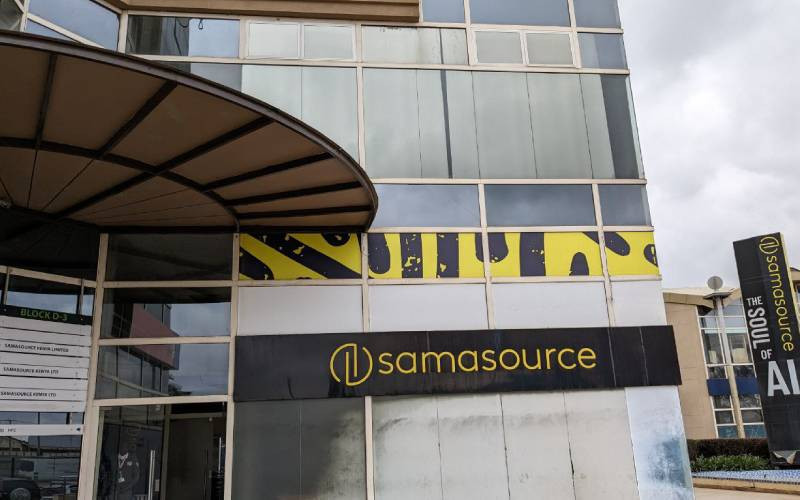More than four billion people use the internet in this day and age and of that, at least three billion are on social media.
So it may come as no surprise to hear that opportunistic scammers are using these channels to target innocent people out of their hard-earned money.
This is exactly what happened to Jessica, who was left out of pocket after buying tickets from what she believed to be a trusted seller on Facebook.
In a desperate bid to secure her entry to sold-out music festival, she went on the social media website in search of any spare tickets.
“I started following the event page on Facebook and saw that people were selling tickets for various reasons - unable to attend/work commitments etc.," the 32-year-old explained.
She then found a seller - and got in touch with a few questions.
The Facebook user, she said, provided proof of purchase along with PDFs for the tickets - "it seemed entirely legitimate," she said.
In fact, he repeatedly told her he was "worried" she'd stop responding after sending her the ticket images.
"I looked at the PDF in detail, analysing the barcode and making sure that all the details married up to the actual event. The seller even provided proof of purchase (an invoice) – I had every reason to believe the tickets were real," Jessica said.
Satisfied, she decided to transfer the money - a total of Sh17,894 - straight to the buyer.
However, that is when things spiralled.
The seller blocked Jessica on Facebook, which raised her suspicions.
"A few days after transferring the money to him, someone on the Facebook page named him as a scammer," she said.
"I went onto Facebook messenger (where we had communicated previously) and that's when I realised he'd blocked me.
"I called the event organiser and they confirmed the tickets were once valid, but had been cancelled two days prior to me buying them off him. Thankfully I found out before turning up to the festival."
Stay informed. Subscribe to our newsletter
As a result, Jessica was left out of pocket and unable to attend the event she'd purchased tickets for - and she says she's learned her lesson.
"This has been a learning curve for me and I’ll now only buy tickets from a website that is official and that I know and trust.
"What’s worse is that after I mentioned his name on the Facebook group, many others came out to say that the exact same thing had happened to them.
"It is extremely frustrating but I would have been even angrier if I turned up to the festival and got turned away.
"During the initial conversations with him on Facebook Messenger, he manipulated me and lured me into a false sense of security by saying he was worried I'd disappear and not pay after receiving the tickets via email," she said.
"It's so frustrating that 'small time' scammers seem to get away with it with no fallout."
According to Barclays Bank, 20 per cent of 18-34 year olds have fallen victim to a ticket scam - costing them Sh22,867 on average.
Here's how the lender says you can protect yourself online.
- Do your research and make sure you are purchasing your ticket from a legitimate source. You can check whether the website or agent is legitimate by making sure they are a member of the Society of Ticket Agents and Retailers (STAR), and that they are listed as an approved ticket seller on the event or festival’s official website.
You can also use search engines to check out other customers’ feedback, and see if anyone else has had problems in the past.
- Think carefully. Fraudsters target the most vulnerable, and if their targets appear willing to go to extreme lengths, including paying more than the original price, they will take advantage of this.
- Is it too good to be true? If the price looks too good to be true, it probably is. Fraudsters will often lure people in with heavily discounted prices for sought after events. If you do find yourself victim, report this to your bank straight away.
- Never let your guard down. Do not let security measures slip as you try to get that elusive ticket.
Remember, always look out for the padlock symbol in the web address to ensure the website is legitimate. If this symbol is not there, do not continue to payment or enter any of your personal details.
- Is it a pay-by-transfer? Scammers love bank transfers; the money goes straight into their account and then the seller can disappear.
By the time you realise that something is wrong, it may be too late. Always try and pay via credit card as this provides added protection over other payment methods.
 The Standard Group Plc is a
multi-media organization with investments in media platforms spanning newspaper
print operations, television, radio broadcasting, digital and online services. The
Standard Group is recognized as a leading multi-media house in Kenya with a key
influence in matters of national and international interest.
The Standard Group Plc is a
multi-media organization with investments in media platforms spanning newspaper
print operations, television, radio broadcasting, digital and online services. The
Standard Group is recognized as a leading multi-media house in Kenya with a key
influence in matters of national and international interest.
 The Standard Group Plc is a
multi-media organization with investments in media platforms spanning newspaper
print operations, television, radio broadcasting, digital and online services. The
Standard Group is recognized as a leading multi-media house in Kenya with a key
influence in matters of national and international interest.
The Standard Group Plc is a
multi-media organization with investments in media platforms spanning newspaper
print operations, television, radio broadcasting, digital and online services. The
Standard Group is recognized as a leading multi-media house in Kenya with a key
influence in matters of national and international interest.








